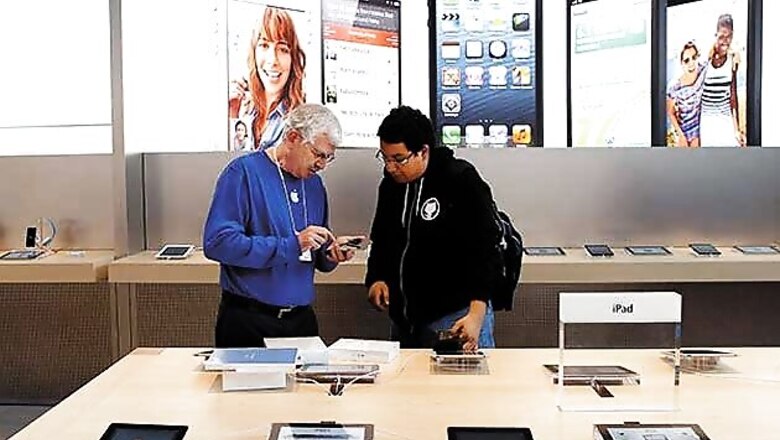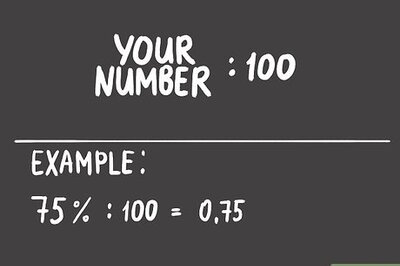
views
Vijay Mallya, the liquor king who wanted to run an airline, recently told the staff at Kingfisher Airlines that he had no money to clear their salary dues. Mallya, like many businessmen before him, became a victim of the line-extension trap, apart from many other sins. "The line-extension trap means using the same brand name on two different categories of products. Kingfisher beer and Kingfisher Airlines. We have studied hundreds of categories and thousands of companies and we find that line-extension generally doesn't work, although there are some exceptions," says marketing expert Laura Ries, who has most recently authored Visual Hammer.
But does such a rigid line against line-extension make sense in this day and age when it is very expensive to build a brand, given the fragmentation of media and its high cost? "We have never said that a company should not line-extend a brand. What we have said is that line-extension 'weakens' a brand," says Ries. But there are always exceptions to the rule, she concedes. "Sometimes, a brand is so strong it can easily withstand some weakening. Early on, for example, the Microsoft brand was exceptionally strong, so the company could use it on other software products and services."
There is also the recent case of Tide-the leading detergent in America-opening a line of dry-cleaning establishments with the Tide brand name. And it might just work, feels Ries: "Because there are no strong brands or national chains in the category, this can possibly work, although we believe Procter & Gamble, the owners of Tide, would be better off with a new brand name."
These exceptions notwithstanding, there are many examples of companies that have not fallen for the line-extension mistake and are doing very well. Toyota is one such example. One of the reasons for its success is the launch of three new brands: Scion, a brand for younger drivers; Prius, a hybrid brand; and Lexus, a luxury brand. "Initially, Prius was a sub-brand of Toyota, but the company recently decided to create a totally separate brand. Prius has some 50 percent of the hybrid market in America and is a phenomenal success. The separate brand name will assure its success for decades to come," says Ries.
What about Apple? Hasn't it also made the line-extension mistake by launching the Apple iPod, the Apple iPhone and the Apple iPad? "Apple is not a product brand. Apple is a company brand. Nobody says, 'I bought an Apple' unless they have just visited a grocery store. They say, 'I bought an iPod' or an iPhone or an iPad, three brands that made Apple one of the most profitable companies in the world," explains Ries.
In that sense, Apple did not really make a line-extension mistake. For every new product, it created a new brand. And the success of this strategy reflects in the numbers. Its competitors, Hewlett-Packard and Dell, line-extended their brands into many of the same products. Both are in trouble: Last year, Apple made $41.7 billion in net profits; Dell made $2.4 billion, and Hewlett-Packard lost $12.7 billion.
But what about Samsung, which has been giving Apple a tough time in almost all product categories that it competes in? "Currently, Samsung is an exception to the principle that line-extension can weaken a brand. But that's only in the short term. We predict that sometime in the future, Samsung will suffer for its marketing mistake," says Ries. "What keeps Samsung profitable is the principle that in every category there's always room for a No 2 brand. Coca-Cola and Pepsi-Cola, for example." And Samsung is clearly not as profitable as Apple.
The other two big companies in the mobile phone market have been Nokia and BlackBerry. Nokia recently launched a smartphone called Lumia, and did not fall for the line-extension trap. On the face of it, this is exactly what Ries would have recommended. Given this, why is Nokia losing out in the smartphone business?
"What's a brand name? What's a model name? What's a sub-brand name?" she asks. "Many companies like Nokia think they can decide what a brand name is and what a model or a sub-brand name is. So Nokia considers 'Lumia' to be its smartphone brand name. Not so. Consumers make that decision. Consumers use iPhone as a brand name and not Apple. Consumers also use Nokia as the brand name and not Lumia. To consumers, Lumia is a model or sub-brand name."
There are several reasons behind consumers not considering Lumia to be a brand name. "Look at a Lumia and you'll see the word 'Nokia' in big type. Look at an iPhone and you won't see the word 'Apple', you'll see the word 'iPhone' in big type and just an Apple trademark," says Ries. Also, Lumia doesn't have its own website (www.lumia.com is a British IT company site). This makes it very difficult to create the impression that it is a brand. This isn't Nokia's first line-extension mistake: Nokia was its brand name for a line of inexpensive cell phones, and today Nokia is using its name for its expensive smartphones, says Ries.














Comments
0 comment